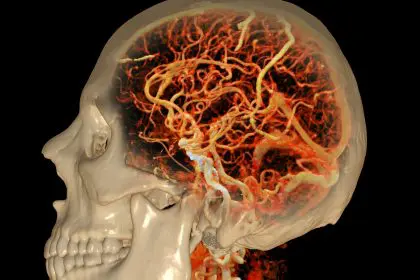While you’re focused on eating brain-healthy foods and staying mentally sharp, some medications sitting in your medicine cabinet could be silently undermining your cognitive health. Two widely prescribed drug categories have emerged as potential threats to long-term brain function, with research revealing alarming connections to dementia and memory decline.
These medications are so common that millions of Americans take them daily without realizing the potential consequences. The concerning findings suggest that what helps you sleep better tonight or manage anxiety today might be putting your future mental clarity at serious risk.
The first brain threat: Anticholinergic medications
Anticholinergic drugs represent the first major category of concern for brain health. These medications block acetylcholine, a crucial neurotransmitter that plays a vital role in learning and memory formation. When this chemical messenger is disrupted, cognitive function can suffer both immediately and over time.
Common anticholinergic medications include many allergy medicines, certain antidepressants, bladder control drugs, and various cold remedies. These drugs are found in both prescription and over-the-counter forms, making them easily accessible and frequently used without medical supervision.
Research tracking nearly 3,500 adults over age 65 revealed startling results about anticholinergic use. Participants who used these medications for three years or more showed a 54% higher risk of developing dementia compared to those who used them for three months or less. The risk increased proportionally with both dosage and duration of use.
The study’s findings were particularly concerning because they included over-the-counter medications, which many people don’t consider when evaluating their drug risks. Whether the anticholinergic came from a prescription bladder medication or a common antihistamine, the dementia risk remained equally elevated.
The second brain threat: Benzodiazepine medications
Benzodiazepines comprise the second category of drugs linked to cognitive decline. These medications work by enhancing the effects of GABA, a neurotransmitter that slows brain activity. While this mechanism helps reduce anxiety and promote sleep, it may also interfere with normal brain function over time.
Popular benzodiazepines include medications commonly prescribed for anxiety, panic disorders, and sleep problems. These drugs are often prescribed for short-term use but frequently become long-term treatments, potentially increasing the associated risks.
Research following thousands of adults over age 66 found that benzodiazepine use significantly increased the likelihood of developing cognitive problems. Those who used these medications for three to six months faced a 32% higher risk of developing memory issues, while those taking them for more than six months saw their risk jump to 84%.
The type of benzodiazepine also mattered significantly. Long-acting versions posed greater risks than shorter-acting alternatives, suggesting that duration of drug activity in the body plays a crucial role in potential brain damage.
Why older adults face greater risks
Age-related changes in how bodies process medications make older adults particularly vulnerable to these drugs’ harmful effects. The kidneys and liver work less efficiently with age, causing medications to remain in the bloodstream longer and at higher concentrations.
Physical changes that occur with aging also affect drug metabolism. Increased body fat and decreased muscle mass alter how medications are distributed and broken down in body tissues. Since both drug categories are stored in fat tissue, they can continue affecting the brain for days after the last dose.
Multiple medications taken simultaneously can interact in unpredictable ways, potentially amplifying harmful effects. This polypharmacy situation is common among older adults, who often manage several chronic conditions requiring different treatments.
How these drugs damage your brain
Both anticholinergic and benzodiazepine medications interfere with normal brain chemistry, but through different mechanisms that can ultimately lead to similar cognitive problems.
Anticholinergic drugs block acetylcholine activity throughout the nervous system. In the brain, this disruption affects the very processes responsible for forming new memories and accessing existing ones. The interference can cause immediate confusion and long-term cognitive decline.
Benzodiazepines enhance GABA activity, which normally helps regulate brain excitability. However, chronic enhancement of this system may lead to lasting changes in brain structure and function. The sedating effects that make these drugs useful for anxiety and sleep may also impair the brain’s ability to maintain healthy neural connections.
Protecting your brain while managing health conditions
The connection between these medications and cognitive decline doesn’t mean you should stop taking prescribed treatments abruptly. Sudden discontinuation can be dangerous and may worsen the conditions these drugs were meant to treat.
Instead, discuss alternatives with healthcare providers who can help develop safer treatment strategies. Many conditions treated with anticholinergic or benzodiazepine medications have alternative therapies that pose lower risks to brain health.
For sleep problems, cognitive behavioral therapy and sleep hygiene improvements often prove more effective than medications. Anxiety disorders may respond well to therapy, lifestyle changes, or different classes of medications with better safety profiles.
Working with medical professionals to gradually reduce dependence on these drugs while implementing alternative treatments offers the best path forward for protecting both current health and future cognitive function.

















